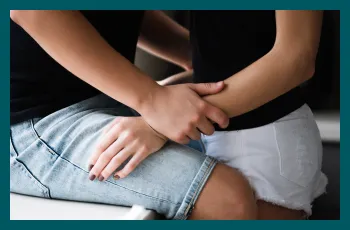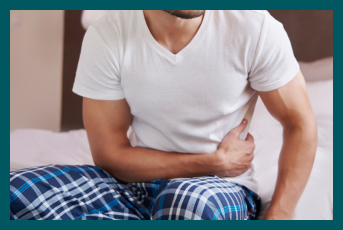- Home
- /
- Health Conditions
- /
- Chest Pain
Chest pain treatment
Chest pain is a common health concern in Australia and can range from mild discomfort to severe, life-threatening emergencies. It’s important to remember that chest pain isn’t always heart-related, it can stem from issues involving the lungs, muscles, digestive system, or even stress and anxiety. Get medical advice through AHPRA-registered practitioners from anywhere in Australia, available 24/7.
4.6/5 based on 28000+ reviews
How our doctors can help
Online GP consultation
From $39
Medical certificates
From $14.90
Specialist referrals
From $39
Prescriptions
From $18.90

When to consult a doctor for chest pain?
If chest pain is severe, persistent, or spreading
Call 000 immediately if there is sudden, crushing, or pressure-like chest pain that lasts more than 10 minutes, comes and goes, or spreads to the arm, jaw, neck, back, or shoulders.
If chest pain is accompanied by other symptoms
Seek emergency help or call (000) if chest pain occurs with shortness of breath, dizziness, nausea, vomiting, cold sweats, fainting, or feeling light-headed.
If chest pain occurs during activity
Call 000 if chest discomfort happens during physical activity or is accompanied by a sense of impending doom or extreme anxiety, as these may be signs of a heart attack.
This guide does not replace professional care. Consult a doctor to manage your symptoms. In emergencies, call 000 or visit a hospital immediately. The content is research-backed & medically reviewed by Dr. Ammar AL-ANI, MBChB, CCBST, AMC
Causes and sywarning signs
Chest pain causes
- Cardiac & Respiratory: Potential causes include heart conditions (angina, heart attack, aortic issues) or lung-related emergencies like blood clots, infections, or a collapsed lung.
- Digestive & Musculoskeletal: Pain may stem from acid reflux (GORD) and gallstones, or physical issues such as muscle strains and rib inflammation.
- Psychological Triggers: Anxiety and panic attacks can manifest as intense chest tightness that often mimics the symptoms of a heart attack.
- Urgent Evaluation: Because many of these causes are life-threatening, any sudden or severe chest pain requires immediate professional medical assessment.
Chest pain warning signs: When to call 000
- Sudden, severe, or crushing chest pain that feels like pressure, tightness, or squeezing.
- Chest pain lasting more than 10 minutes, even if it comes and goes.
- Pain that spreads to the arm, jaw, neck, back, or shoulders.
- Shortness of breath, dizziness, nausea, vomiting, or cold sweats.
- Fainting or feeling light-headed.
- A sense of impending doom or extreme anxiety.
- Chest discomfort or pain during physical activity.
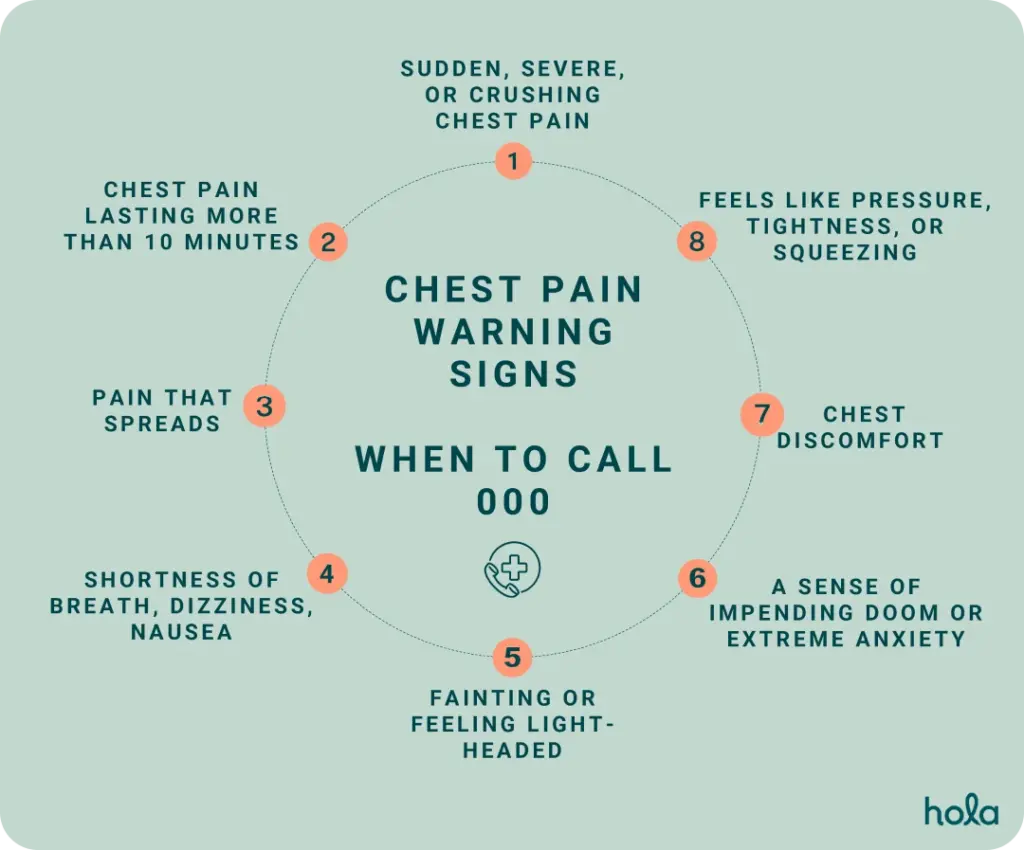
What does chest pain in teenagers mean
While chest pain in teenagers can be alarming, it’s often less serious than in adults. In most cases, it’s caused by non-cardiac issues like muscle strain, especially from sports or poor posture. Stress, anxiety, or panic attacks are also common culprits in teens, leading to sharp, brief chest discomfort or tightness.
While heart-related causes are rare in teenagers, it’s important to seek medical advice if chest pain is severe, lasts longer than 10 minutes, happens during activity, or is accompanied by breathlessness, dizziness, or fainting.
How can we help?
Hola Health provides a fast and convenient way for you to see a doctor online in minutes, 24/7 across Australia. Much like an in-person GP clinic, our AHPRA-registered Australian online GP will conduct a comprehensive assessment to provide the best possible care, instantly.

Speak to our doctors 24/7
Providing consults for
Helpful resources
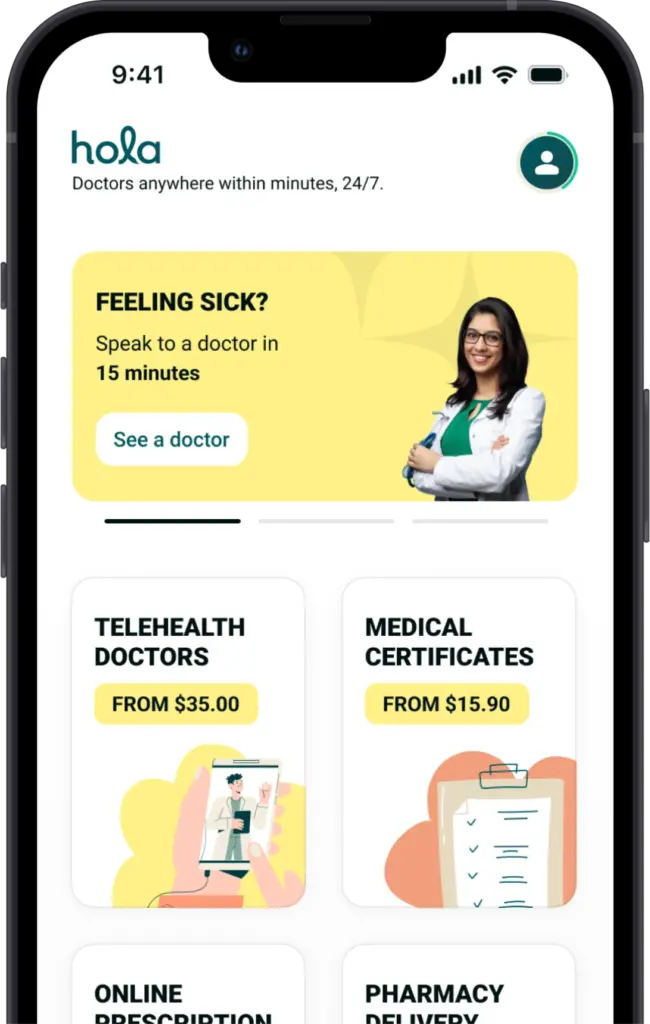
Download our Mobile App for better performance
- Book appointments instantly.
- Stay connected wherever you are.
- Experience healthcare, uninterrupted.
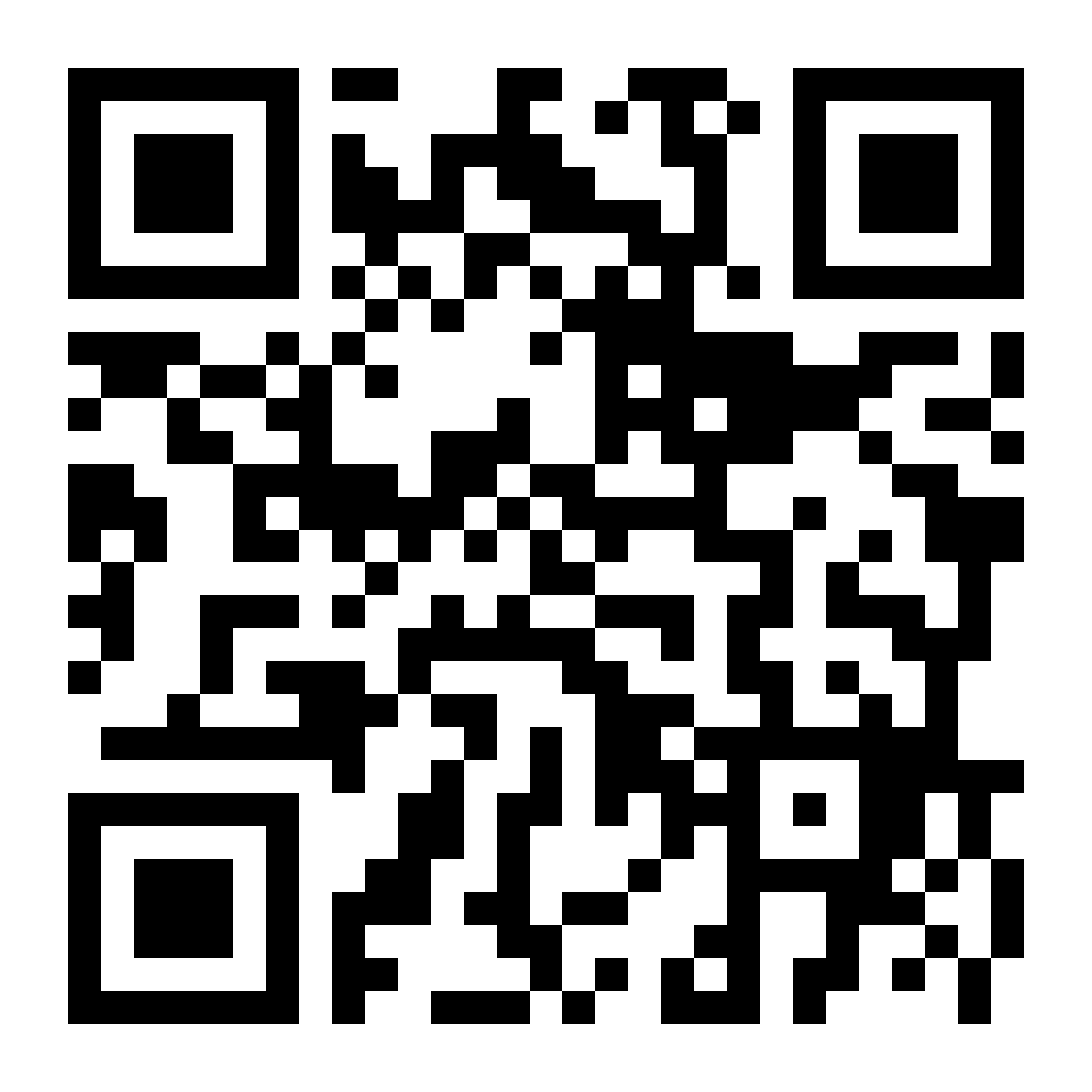 Scan the QR Code to download the app instantly
Scan the QR Code to download the app instantly 